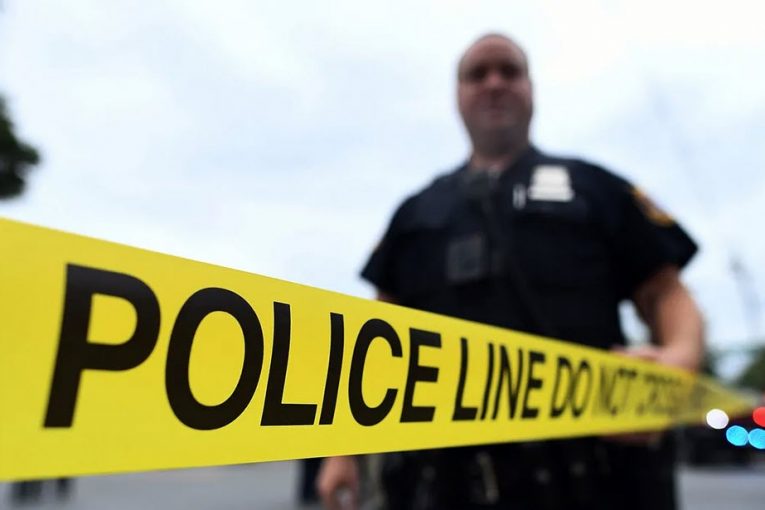

By Gabriel Johnson
MEMPHIS, TN – The U.S. Dept. of Justice recently announced it is investigating the Memphis Police Department in relation to the death of Tyre Nichols at the hands of Memphis police officers, which happened during a traffic stop.
While the current administration claims to support police reform, according to Farhang Heydari, in an opinion piece in The Hill, “if the federal government is serious about ending the kind of ineffective and ultimately deadly policing that caused Nichols’s death in the first place, it needs to look in the mirror.”
Heydari, a senior advisor at the Policing Project at NYU School of Law and assistant professor at Vanderbilt Law School, cites four examples of federal agencies promoting the practice of (local law enforcement) using low level traffic offenses as a pretext for investigative stops.
Firstly, said Heydari, the federal Department of Transportation (DOT) “has been pushing local police departments across the country to make more low-level traffic stops like the one that led to Nichols’s death. Despite being an agency tasked with transportation safety, it has been urging local police to make more pretextual stops to fight crime.”
Heydari points out the DOT is even providing training on how to do this, stating, “The DOT’s National Highway Traffic Safety Administration (NHTSA) has been training ‘experts’ in a program known as Data-Drive Approaches to Crime and Traffic Safety” that teaches police across the country to fight crime through high-volume traffic enforcement.”
He adds, “Making a high volume of low-level traffic stops, the program claims, can help police find drug traffickers, violent criminals and even terrorists. Today, about a thousand law enforcement agencies have received training in it.”
The author said the “Drug Enforcement Administration — rely on what are known as ‘whisper stops,’ in which a federal agency ‘whispers’ into the ear of local law enforcement about a person of interest, and then local law enforcement finds a pretext to stop or arrest them.”
Thirdly, The Hill article explains how ICE has gotten involved: “Immigration and Customs Enforcement contracts with local police to detain undocumented immigrants, and those police departments — most notably but not solely in Maricopa County, Ariz. — often have used pretextual stops to facilitate encounters.”
Farhang Heydari explains, “Even the Biden White House, while urging Congress to ‘do something’ after the killing of Nichols, is itself involved in pushing pretextual policing. The President’s Office on National Drug Control Policy administers a drug interdiction program, known as the High-Intensity Drug Trafficking Areas Program, that likely relies heavily on using traffic enforcement for drug interdiction — yet another example of pretextual policing.”
And according to the article. “Roughly two-thirds of all Americans live in so-called ‘high-intensity drug trafficking areas.’”
Heydari argues “evidence suggests that these encounters — which can be extremely dangerous — do nothing to promote public safety. In fact, there’s evidence to suggest they might increase crime by undermining public trust in law enforcement and diverting resources.”
In support of this argument, he points out, “One analysis of 3.4 million traffic stops conducted by California’s 15 largest law enforcement agencies revealed that during those stops, officers confiscated a total of 905 firearms.
“That’s one confiscation for every 3,700 stops, or a yield rate of less than .03 percent.” And, “A statistical analysis conducted by my colleagues at the Policing Project and Stanford’s Computational Policy Lab found that in Nashville, ‘non-moving violation stops do not appear to have a discernible effect on either long-term or short-term crime rates….’”
After addressing public safety in The Hill, Heydari questions whether low-level traffic stops increase traffic safety, because, “When Fayetteville, N.C. re-prioritized its traffic enforcement policies, by cutting back on low-level traffic violations to focus instead on moving violations, the number of traffic crashes and fatalities decreased significantly. So did racial disparities in who was being stopped.”
According to the article, “the feds lend their resources and authority to a practice that has been proven ineffective and dangerous” as a tool in “the war on drugs.”
However, Heydari adds, “There is now a broad consensus that the war on drugs has been a failure and led to our current era of mass incarceration. It is rightfully being undone piece by piece, and pretextual policing should be next to go.”
In conclusion in The Hill opinion, Farhang Heydari proposes, “It’s not enough for the Department of Justice to investigate individual police departments that engage in the type of policing that killed Tyre Nichols. If the federal government wants to stop dangerous and reckless policing, it has to stop encouraging exactly this sort of dangerous and reckless policing.”